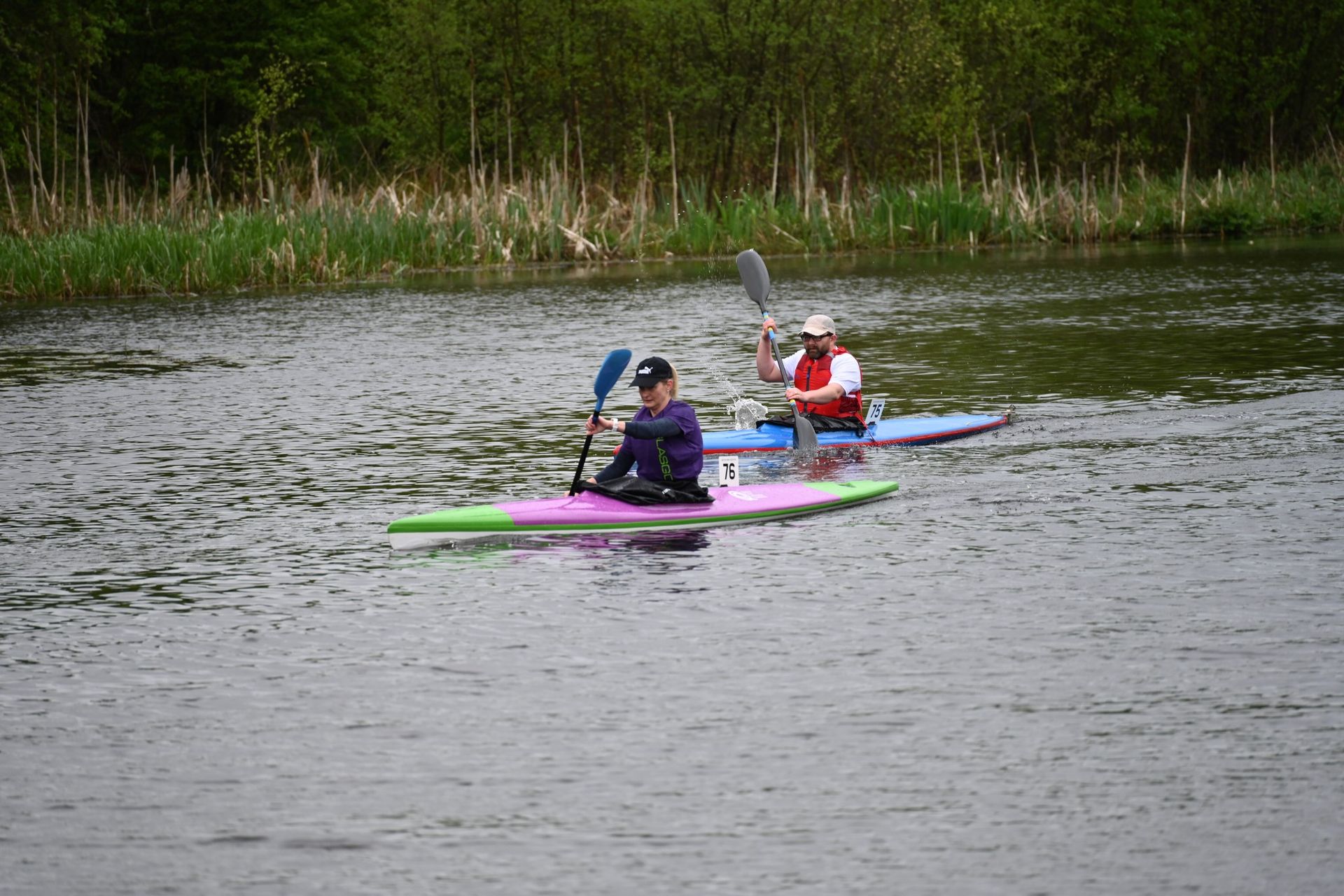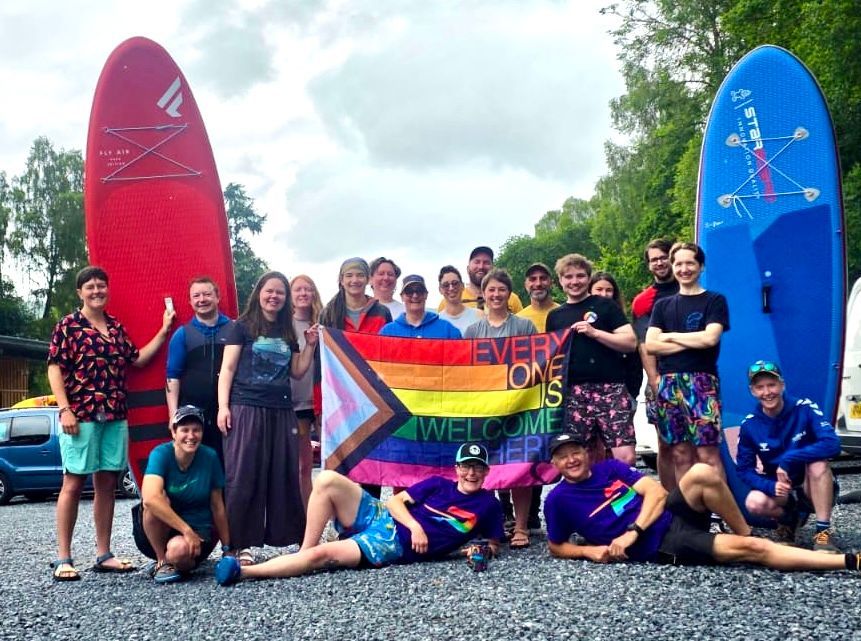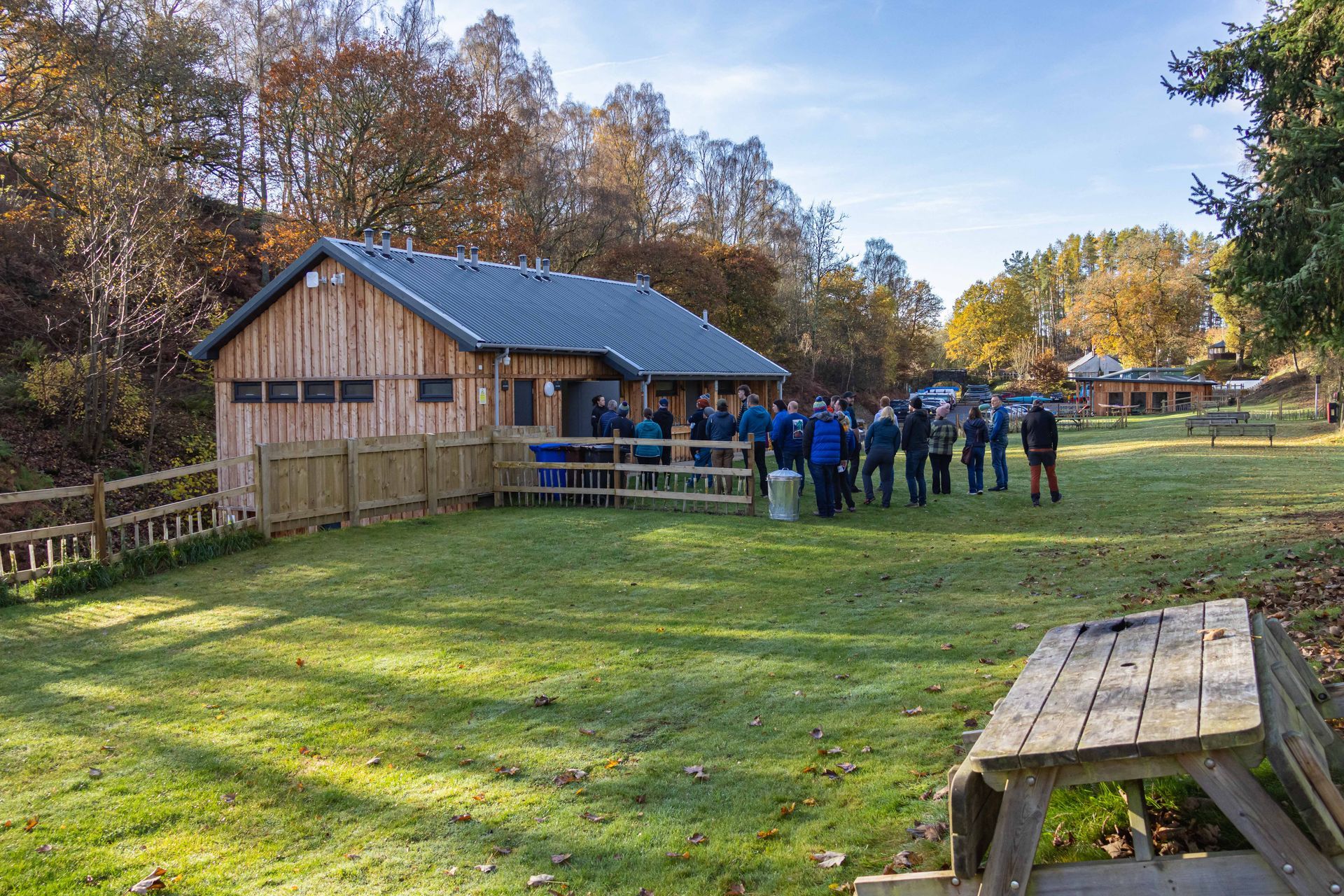10 Tips to Step Up as an Ally to LGBTQ+ People in Sport
10 Tips to Step Up as an Ally to LGBTQ+ People in Sport
Physical activity is a great way to stay healthy both physically and mentally and many of us participate in paddlesport and exercise in order to seek solace. However, not everyone feels comfortable participating in sport and exercise presenting as fully themselves. 33% of LGBTQ+ people who participate or follow sport are not out to anyone in their sporting life (Out in Sport, 2019).
The Rainbow laces campaign by Stonewall UK aims to raise awareness and support for LGBTQ+ people in sport. For this year’s campaign we would like to share with you 10 tips to step up as an ally to LGBTQ+ people in sport; these are things we can all do in our daily lives and take into our clubs and organisations.
Tip 1. Put your pronouns next to your name on video chat.
This is a simple step that anyone can take to be a trans ally within their sport community. Sharing your pronouns (if you’re comfortable doing so) and asking the same of your fellow paddlers or club members, can create a culture where no one’s gender identity is assumed. You could also include your pronouns when introducing yourself in meetings.
Tip 2. Be aware of the challenges your LGBT+ peers might be facing.
Take the time to listen to LGBTQ+ people’s experiences and consider the ways that increased isolation and living in homophobic, biphobic, transphobic and acephobic environments might take a toll. Some people may need to adapt their engagement online, and with the campaign to protect themselves.
Tip 3. Be an ally to BAME/PoC LGBT+ people and other marginalised LGBT+ people.
The fight against racism in sport has been and continues to be a long and difficult one. For BAME/PoC LGBTQ+ people, sport can be an especially unwelcoming environment with barriers to inclusion and recognition. Kick It Out research found that there have been shocking increases in the levels of race hate and abuse based on sexual orientation around football matches and across social media – in spite of the season being put on hold for several months due to Covid-19.
We can all start to tackle racism – and other forms of oppression like ableism and sexism, which affect LGBTQ+ people at the intersections of these identities – by educating ourselves and stepping up as an ally.
Tip 4. Support your LGBT+ peers.
You can find a range of support tailored specifically to LGBT people. Make this information available to your community, friends, family or team and be part of creating a more open environment for everyone to talk about mental health and wellbeing.
Tip 5. Challenge homophobia, biphobia, transphobia and acephobia online.
Over the years, the culture around homophobia, biphobia, transphobia and acephobia has started to shift in the sporting world. It’s heartening to know that 46% of people feel confident challenging anti LGBT language online. But it’s all too easy to let things slide.
Speak up when you see anti-LGBTQ+ bullying or language. As an ally you can educate the people around you, making sure that LGBTQ+ people don’t have to do all the work on their own. It’s not always easy to use your voice but it’s a fundamental part of being an ally and can make a big difference for LGBTQ+ people in sport.
Tip 6. Celebrate LGBTQ+ achievements in sport.
There’s still more to do to end homophobia, biphobia, transphobia and acephobia in sport but it’s important to recognise and uplift LGBTQ+ people throughout the year and not just in the context of discrimination. It can be as simple as sharing positive news stories or interviews with LGBTQ+ people in sports on your social media or writing up a case study with LGBTQ+ people in your sporting community.
Tip 7. Establish or re-establish the ground rules of respect and inclusion.
Every team member plays a huge role in making people feel part of the team. Club talks, end of season speeches, WhatsApp groups and changing room chatter – take a look at the steps to being an inclusive teammate to ensure everyone can give their all to the club and make the best of themselves.
Tip 8. For Clubs and other organisations: Make sure your policies reflect your values.
For a lot of people, sport and sporting environments are ‘safe spaces’, somewhere they feel comfortable and at ease. But for others, the same place might make them feel like they have to hide part of their lives because of how others might react.
Follow the tips on being an inclusive sports organisation to create a space where everyone feels they can be their authentic self. This way, they can spend all their energy and enthusiasm on their sport.
Tip 9. Be a visible ally!
Buy your laces now! Wearing Rainbow Laces or a set of our new ace, bi, lesbian, non-binary or trans laces can go a long way to demonstrating a proud commitment to LGBTQ+ inclusion. Consider how you can mark Rainbow Laces day and the ways that you’ll be a visible ally throughout the year.
Tip 10. Don’t wait to start the work.
The coronavirus pandemic can make it feel like the world is on pause. But being an ally is about adapting, being consistent and looking out for your LGBTQ+ peers no matter what.
Take care of yourself and take care of your community. All of these tips can be implemented from home and online, so we can all play our part to make sport everyone’s game.
This news piece was originally published on StonewallUK

















